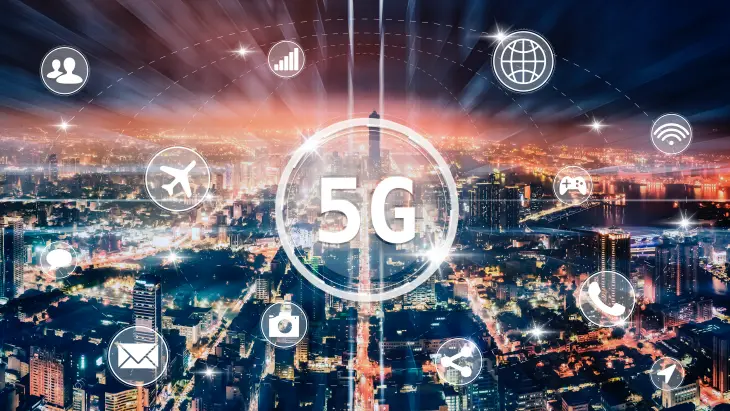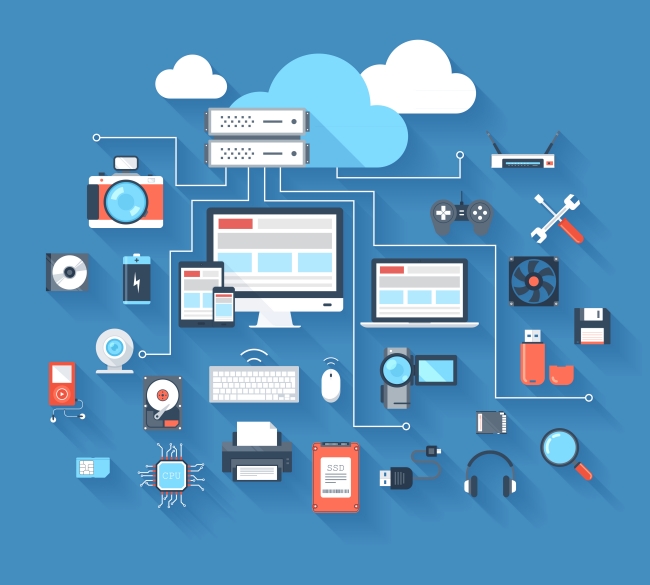Developments from the World…
- Most of the main agenda issues that affect most sectors and concern the business world closely are expected to have an impact in 2023. The Federal Reserve and other Western central banks are raising rates even higher to combat inflation. However, China keeps its monetary policy loose.
- The inflation crisis, which also affects consumers and retailers, may also be an obstacle to e-commerce growth. Online shopping, which constitutes 14% of all sales, increased by more than 10% in 2019 due to the pandemic effect. It is difficult to say a similar positive rise for 2022. Although e-commerce will attract attention in 2023, the impact of high inflation on consumption will be felt more clearly.
- It is difficult to say that Covid-19 will no longer pose a complete risk to the business world in 2023. Because the recent harsh measures taken by the Chinese state due to its “zero loss” policy also affect China’s production businesses that concern the outside world. We can say that the energy crisis, which increased with the Ukrainian crisis and became more of a priority as the weather cooled in the northern hemisphere, played a role in the pandemic falling behind the agenda on a global scale.

- Unlike Europe, whose industry is showing signs of slowing down, Asia’s 1.5% increase in global oil demand with its rising energy appetite is one of the agenda topics that will extend into the coming year. The energy problem, along with the climate and food crisis, will occupy the agenda more.
- Due to current developments, commodity prices have become values that are constantly monitored. According to the “Commodity Markets Outlook Report” published by the World Bank at the end of October, energy prices are expected to decrease by 11.2% in 2023 after increasing by 59.1% this year. Stating that the price index for precious metals is expected to decrease by 4% this year and 3.6% next year, the report included an estimate that the ounce price of gold will decrease by 1.4% this year compared to last year and 4.2% in 2023.
- Due to global recession expectations, the predicted increase in technology spending of more than 6% seems unlikely to materialize. Although device sales have been disappointing, the fact that the artificial intelligence market has increased to $500 billion is encouraging. New technologies are expected to play a more active role in the global market in the coming years.
- In the entertainment world, online streaming platforms seem to increase their investments next year as well. The expectation that Netflix’s competitors will respond to its $17 billion investment in 2022 next year may be a harbinger of tougher competition in 2023.
- In addition to the chip crisis, supply problems due to the pandemic and war shook the automotive market this year. Global sales of new cars increased by just 1%. However, there was a 25% increase in sales of electric vehicles.
- The fact that business professionals largely prefer to hold meetings and events online has directly affected travel. Even though the airline industry has not yet caught up with the pre-pandemic level, the 30% increase compared to the previous year gave morale a boost.
- Technology is developing faster than ever; Despite global epidemics and wars, it can be expected to reveal its positive effects more clearly in the coming year and beyond.
In light of all these developments, we can list the prominent trends of 2023 for the business world as follows:
Businesses Provide Accelerated Digital Transformation

As a result of the pandemic, institutions and individuals adapted their lives to technology faster, which also affected digital transformation plans. In 2023, innovations and developments will continue in technologies such as artificial intelligence (AI), internet of things (IoT), virtual and augmented reality (VR/AR), new generation networking (5G), cloud computing (Cloud) and blockchain. It is foreseen.
We will see more and more in the coming years that these digital technologies that fuel transformation are getting closer to each other and the boundaries between them are blurring. Issues such as augmented working, new solutions for hybrid and remote working, decision-making processes, and automation of routine and creative workloads will allow trend technologies to improve each other.
The transformation in systems to complete simple and ordinary tasks as quickly and efficiently as possible will now enable the concept of “smart businesses” to be revealed in a more tangible way.
While businesses provide accelerated digital transformation; It is very important for them to ensure that they have the right technology in place in every aspect of their processes and operations. More effective sales and marketing, better customer services, more efficient supply chains, products and services more suitable to customer needs and modern production processes will be talked about much more in 2023.
Security is Provided in Inflation and Supply Chain
We included some preliminary information about inflation in the introduction section of the article. The economic outlook for most of the world in 2023 is not good. While experts cite ongoing inflation and subdued economic growth expectations, many industries are still grappling with supply chain issues that emerged during global shutdowns caused by Covid-19 and have been exacerbated by the war in Ukraine.
To combat this and survive, companies need to improve their flexibility as much as possible. Important factors such as the variability of commodity prices and the increase in logistics costs make protective measures in supply chains even more of a priority.
It is very important for companies to plan their entire supply chain and determine their exposure to supply and inflation risks. Obtaining alternative suppliers may be a measure to reduce risk. China’s grappling with its zero Covid policy and subsequent shutdowns could also create problems with the supply of production parts in 2023.
Sustainability Plays a Role in Conscious Consumer Perception

The climate crisis, which has increased its effects in recent decades, seems to overshadow the challenges brought by the covid pandemic. Awareness studies on sustainability also affect the preferences of investors and consumers. We are moving towards a process where businesses with the right environmental and social references will be preferred. As purchasing trends change, factors such as ecological impact and sustainability will take priority when choosing who to shop or do business with. The role of sustainability in conscious consumer perception is among the things to be noted for 2023.
In 2023, companies will be expected to move environmental, social and governance (ESG) processes to the center of their strategies. Any business should start by measuring its impact on society and the environment, and then increase transparency, reporting and accountability. Every business will need clear goals and a timetable for how to reduce negative impacts. Conveying the evaluations and plans to the stakeholders of the companies; Coverage of the entire supply chain and suppliers’ ESG credentials will also be evaluated.
Artificial Intelligence (AI) Is Becoming Dominant in the Business World
Fortunately, the downsizing experienced by technology giants is being balanced with developments in software and especially artificial intelligence. We will witness more clearly in 2023 that artificial intelligence will become a dominant force in the business world. With its ability to process impressive amounts of data and learn from experience, AI is quickly becoming a valuable tool for organizations of all sizes.
We can say that artificial intelligence will continue to play an important role in entrepreneurship and its importance will continue to increase in the coming years. Companies will need to find ways to invest in and incorporate AI into their operations to take advantage of new opportunities, automate tasks and processes, reduce costs, increase efficiency and improve decision-making processes. Accordingly, customer service and the Internet of Things (IoT) will become more widespread.
Internet of Things (IoT) Reveals Huge Opportunities

The Internet of Things, which has been a regular on the trend lists in recent years, finds its place in 2023 as well. The Internet of Things, which makes physical devices, vehicles, household appliances and electronic products manageable and controllable with sensors and connection protocols, requires connections such as 5G for instant data exchange.
Global spending on IoT products, which will not transform the way we currently live and work in the near future and whose impact will become more evident soon, is estimated to reach $1.1 trillion in 2023.
Although still in its early stages, the rapidly expanding Internet of Things will significantly impact our economy and society, creating new jobs and industries and unlocking tremendous opportunities for businesses and consumers.
Sharing Economy Creates New Opportunities for Entrepreneurs
It is estimated that the Sharing Economy, which maintains a stable growth rate of approximately 10% per year, will increase its prevalence in 2023 and become a market worth approximately 335 billion dollars by 2025.
While one of the main factors driving this growth is the increase in the availability of shared assets, various factors such as the spread of urbanization and population growth are also driving the convenience of sharing and the decreasing cost of technology.
We can expect the Sharing Economy, which affects many sectors including transportation, accommodation and retail, to have a broader impact by stealing share from some sectors in 2023.
One of the most exciting aspects of the sharing economy is its potential to create new opportunities for entrepreneurs. It seems that an increasing number of businesses will be born around sharing and these businesses will play an important role in economic growth. Companies can take advantage of this trend to attract new customers, reduce costs and increase efficiency.
Cloud Computing and Big Data Continue to Gain Importance

Cloud Computing and Big Data, just like Artificial Intelligence and the Internet of Things, manage to be on the lists of trends that will shape the business world. These two elements, which are among the most important technological developments of our time, changing the way companies work and how we live our lives, will continue to develop and gain importance over the next few years.
Cloud computing creates numerous benefits by allowing organizations to store and access data on remote servers from anywhere in the world. As cloud-based services become increasingly common, businesses will increasingly rely on them to power their operations.
The expectation that the majority of companies will increase their cloud computing investments in 2023 will also enable the emergence of new players in the sector. Increased competition can drive down prices and improve the quality of cloud services.
We can be certain that the amount of big data produced will increase exponentially in the future. Businesses will need to find new ways to store and process this data, which will become even more complex. This means that traditional analytical methods will become less effective and companies will need functional machine learning tools to make sense of the data.
In the past, companies analyzed big data primarily for marketing and advertising purposes. In 2023, big data; It will help solve more complex problems, improve decision-making and predict future trends in healthcare, finance and manufacturing.
5G Puts an End to Worries About Connection Issues
By 2023, fifth-generation cellular technology will become more widespread around the world. 5G, which will bring higher speeds, lower latency and more capacity to wireless networks, will eliminate many of the concerns of companies about connection problems.
The 5G network, which promises to enable new applications and services impossible with previous generations of wireless technologies, is now rolling out in many parts of the world, with several devices already becoming 5G compatible, including smartphones, laptops and even drones.
Thanks to 5G, which will tremendously impact many sectors including healthcare, transportation and manufacturing, healthcare providers will be able to connect to patients remotely, and transportation companies will use it to manage autonomous, that is, driverless vehicles. Manufacturing companies will also use 5G to connect factories and machines to the Internet of Things.